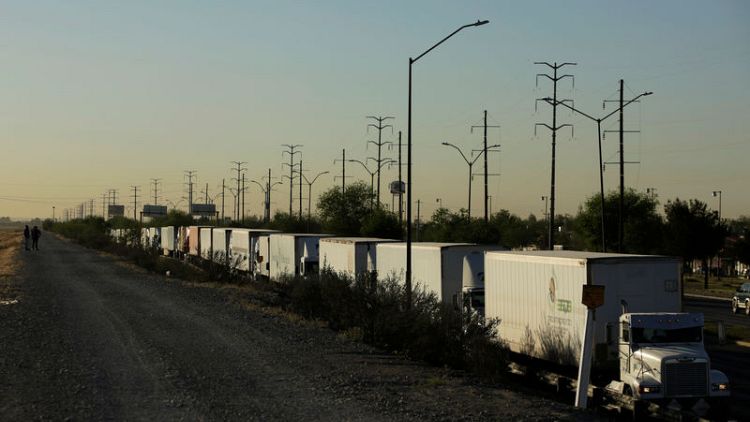By Jose Luis Gonzalez and Anthony Esposito
CIUDAD JUAREZ/MEXICO CITY (Reuters) - Long delays at the U.S.-Mexico border crossing for goods destined for American plants and consumers are hitting the U.S. auto industry, and the gridlock reduced by half the number of northbound trucks that crossed the entry point last week.
Washington's decision to move some 750 agents from commercial to immigration duties to handle a surge in families seeking asylum in the United States has triggered the delays at crucial ports on a border that handle $1.7 billion in daily trade.
"The situation in Ciudad Juarez is very serious because these auto parts go to plants in the United States and obviously they put at risk the operation in the United States," Eduardo Solis, the president of the Mexican Auto Industry Association (AMIA), said on Monday.
The North American auto industry is highly integrated and many car parts cross the border several times before they are finally installed on a vehicle.
Seventeen 17 hours before the crossing to El Paso even opened on Monday morning, trucks were already lining up in Ciudad Juarez to avoid the fate of some 7,500 trailers that failed to cross last week, said Manuel Sotelo, vice president at the Mexican National Chamber of Freight Transport's north division.
That is roughly half the number of trucks per week that usually cross there, carrying everything from car and plane parts to refrigerators, washing machines, TVs, cellphones and computers.
"This is not normal. We had never seen this before in Ciudad Juarez," said Sotelo.
Despite elevated costs, some Mexican exporters are turning to air freight to avoid the mile-long lines at the border.
"We're using charter (planes) which cost between $35,000 and $100,000 depending on the volume and merchandise," said Pedro Chavira, who heads the manufacturing industry chamber INDEX in Ciudad Juarez.
(Reporting by Jose Luis Gonzalez in Ciudad Juarez and Anthony Esposito and Sharay Angulo in Mexico City; Editing by Frank Jack Daniel and Dan Grebler)
